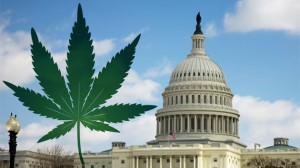Marijuana is Legal for Recreational Use in Four More States; Now What?
On November 8th, California, Maine, Massachusetts, and Nevada joined the current four states and DC in the legalization of marijuana for recreational use. Some herald this as success, others decry it as a tragedy. What is beyond question is that those who do choose to use marijuana should keep in mind the limitations of the legalization measures and the continuing risks.
Possession Limits
As a baseline, all the passed measures require that you be at least 21 years old to possess marijuana. Under the new measures, there are limits to how much an individual may possess and grow for personal use. Possessing or growing more than allowed is still illegal, even under state law. California allows a person over 21 to possess 28.5 grams of marijuana, Maine allows two and a half ounces, and Massachusetts and Nevada allow one ounce. All four states allow a person over 21 to grow up to 6 marijuana plants and to keep the harvested marijuana for their personal use.
Growing Restrictions
In addition to the possession limits, there are requirements upon how you must go about growing marijuana. First, the marijuana must be for your own personal use or given in limited quantities to  others over 21. You may not accept payment for marijuana grown for personal consumption and can only give away a limited amount. The four measures vary slightly on location requirements for growing. Overall, all four require any marijuana be grown in a place where it is kept safely out of the reach of children.
others over 21. You may not accept payment for marijuana grown for personal consumption and can only give away a limited amount. The four measures vary slightly on location requirements for growing. Overall, all four require any marijuana be grown in a place where it is kept safely out of the reach of children.
Sale and Giving Away
Both selling and giving away marijuana are addressed in the new measures. In all four states, under the new measures, you may give away, without any sort of payment, up to one ounce of marijuana. Sale is absolutely forbidden unless you follow new state licensing and regulatory procedures to become a marijuana business.
Where and When?
All four measures also limit where and when marijuana may be used. The measures all prohibit marijuana use in public, including public establishments like bars. They also prohibit marijuana use in or near premises frequented by children such as community centers and schools. None of the measures change DUI laws so driving under the influence of marijuana is still a criminal act in these 4 states.
Effective Date
Each of these measures has their own effective dates. That is, the day that the measures become law. California’s measure was quickest, it was effective the day after the election, November 9, 2016. Massachusetts’ measure will take effect on December 15, 2016. Nevada’s measure will take effect on January 1, 2017. Maine has yet to establish a clear effective date due to a battle currently raging in Augusta.
The Maine Problem
The marijuana legalization measure in Maine prescribed that it would take effect 30 days after Governor LePage signs it. However, LePage has been a vocal opponent of the measure ever since it was allowed onto the ballot. Currently, LePage is making statements that the measure violates federal law and will require legislative tinkering to even be viable. The opponents of the measure are currently demanding a recount, as the measure passed on a margin of 4,000 votes. Needless to say, with the recount demands and his personal opposition, LePage is currently refusing to sign the measure. This leaves Maine law on the subject in limbo.
Still Illegal
Even with these measures passed, marijuana is still illegal across the US. Federal law still designates marijuana as a schedule one drug. This means, even if you follow all the rules set forth in the new measures, federal law enforcement such as the Drug Enforcement Agency, Bureau of Alcohol, Tobacco, and Firearms, Federal Bureau of Investigation, and Federal Marshalls may still arrest and prosecute you for possession, growing, or giving away marijuana. This comes from the fact that the United State’s federal system gives federal law supremacy over state law as explained here. To summarize, the new measures communicate to state, county, and city level police that they cannot arrest or prosecute anyone following the rules outlined in the measures but do not hold any sway over federal law enforcement.
Federal law enforcement trends on prosecuting marijuana possession have not been consistent. In this area, the President holds a lot of sway. Under the administrations of Presidents George W. Bush and Barack Obama, federal investigators and prosecutors have prosecuted those using or growing marijuana even in states that have legalized medical or recreational use. President-elect Donald Trump has not been clear in his views on marijuana. Years ago, he asserted that all drugs should be legalized. However, on the campaign trail, he proclaimed that he is ok with medicinal marijuana but not with recreational use. It is difficult to predict how a Trump administration will handle marijuana prosecution.
Overall, marijuana laws are changing. Marijuana is still not legal in the US, even for medicinal use. State laws, like the recreational marijuana measures, only protect marijuana users from state law enforcement. If you do choose to use marijuana under a state recreational marijuana measure, keep in mind the limits placed by the measure and the risks of federal prosecution.

Comments